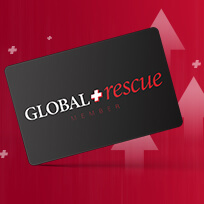The 2018-19 flu season was the longest in a decade — 21 weeks according to the Centers for Disease Control and Prevention (CDC) — and included two waves of flu viruses (H1N1 and H3H2) back to back. The flu season is unpredictable and flu viruses are constantly changing, so no one knows what the severity will be in 2019-20. The CDC tracks flu activity on its website starting in late fall.
Unlike the common cold, the flu comes on suddenly and typically with more severity.
“It hits you like a sledgehammer,” says Elite Medical Group (EMG) Medical Director, Dr. Claudia Zegans.
Symptoms can include fever, body aches, headache, fatigue, sore throat, runny nose, cough and sometimes gastrointestinal disturbance.
It’s easier to care for yourself when you’re at home. You can camp out on the couch or climb back into bed, surrounding yourself with tissues, cough drops, Ibuprofen or acetaminophen and plenty of liquids to drink. You can reach out to your own health care provider for guidance if your symptoms are severe or you have a chronic health condition that puts you at higher risk for flu complications.
But when you are traveling, the flu could quickly become life-threatening. If you find yourself in a hotel room instead of your living room, Global Rescue offers these flu remedies while on business travel abroad.
Before you go.
Travelers should get a flu vaccine to protect themselves before traveling. According to the CDC, the flu vaccine used in the Northern Hemisphere usually protects against the main viruses circulating in other parts of the world.
Global Rescue and EMG recommend all travelers have a pre-travel health consultation with a travel health care provider four to six weeks prior to travel. Such a consult is even more important for pregnant travelers, globetrotters with asthma or diabetes, older adults, children under five and people with a weakened immune system.
In addition to recommending flu vaccination, your doctor may consider providing you a supply of anti-viral medication, particularly if you are traveling to a part of the world where access to reliable health care and medications may be a concern.
Stay in your room.
The flu virus can spread up to six feet away when someone coughs, sneezes or talks — so stay in your room and away from others.
“Most healthy adults are infectious beginning one day before symptoms develop and up to seven days after becoming sick,” Zegans said. “Symptoms start one to four days after the virus enters the body. That means that you may be able to pass on the flu to someone else before you know you are sick, as well as while you are sick.”
The CDC recommends avoiding contact with others for at least 24 hours after your fever is gone.
Hydrate.
Just a slight rise in body temperature increases your metabolic rate. Not eating or drinking can lead to dehydration, so it’s important to drink plenty of fluids. If you catch the flu while traveling, skip the juices and sports drinks and opt for decaffeinated teas or water with lemon.
Manage the symptoms.
Need to have some relief from fever and body aches? Sinuses clogged so much you can only breathe through your mouth? Use the over-the-counter medicines that work the best for you. They won’t cure you from the flu but they will ease some of the discomfort.
Remember to double check the countries on your itinerary for restrictions on bringing medications in. Some countries even ban commonly considered routine cold and flu remedies such as pseudoephedrine. Learn more about traveling with medications in our recent post.
Sleep.
PassportHealth provides advice on how to deal with the flu while traveling. One basic — but important — tip is to nap and give your body the rest it needs.
Practice good hygiene.
Wash your hands often with soap and water if possible. Use an alcohol-based hand rub if soap is unavailable or water is unsafe. Disinfect frequently used surfaces like faucets and doorknobs. (This can also help you avoid germs and viruses on an airplane, according to SmarterTravel.) Avoid touching your nose and mouth and cover your nose and mouth with a tissue when you cough or sneeze.
Visit the doctor.
You may be doing all the right things to combat the flu, but the symptoms are lingering. It’s time to contact a doctor. If the hotel doesn’t have one on staff, the International Society of Travel Medicine offers a global database of their members and travel clinics around the world. You can also contact the U.S. Embassy or consulate websites for a list of doctors and hospitals in the country you are visiting. If you are a Global Rescue member, simply contact our operations center for immediate assistance 24/7/365.
Bring the doctor to you.
You’re supposed to stay in place so you don’t spread germs to others — making the flu a good time to take advantage of telemedicine options.
“You don’t always have to go to the clinic to test for flu,” Zegans said. “The CDC has developed a good set of clinical diagnostic criteria for health care providers to follow, so telemedicine doctors don’t necessarily have to have a test result in order to treat.”
Rebook your flight.
The comfort of your home is calling you, but air pressure can create unpleasant symptoms if you are flying while congested, according to an article in Travel + Leisure. Rebook your return so you don’t extend your illness and infect others — it’s the advice we gave Global Rescue member Lucas Hanna when he came down with the flu while on business in Norway.
Global Rescue members traveling with the flu can access advisory services 24/7/365 from our operations centers staffed by critical care paramedics and nurses.
“Before the morning was over, Global Rescue had researched and contacted the doctor, the local hospitals, my hotel, and called my cell and room to see how I was doing and if they could help,” Hanna said. “I was very pleased with the professionalism and promptness of the Global Rescue personnel.”
TotalCare memberships offer the same services as a travel membership, but also provide members immediate access to a team of medical experts. Real-time video consultations and treatment are available on the phone, on the web or through the My Global Rescue Mobile App†. Click here to learn more.
©2019 Global Rescue LLC. TotalCare and the TotalCare logo are service marks of Global Rescue LLC. All Rights Reserved. Global Rescue LLC provides technical and administrative services to Elite Medical Group, P.C. (“Elite Medical”), a professional corporation owned by licensed physicians that employs or contracts with physicians licensed to practice medicine where medical services are provided. It is not guaranteed that a prescription will be written, nor will any DEA controlled substances, non-therapeutic drugs and certain other drugs which may be harmful because of their potential for abuse, be prescribed or provided as a result of a TotalCare consultation. Elite Medical physicians reserve the right to deny care for potential or actual misuse of services.
† The Global Rescue Mobile App is designed for operation on the current versions of Android and iOS operating systems. Availability of services is subject to your equipment compatibility, connectivity and signal in your location. There is no guarantee that all features and functionality will be available in your location. Use and availability of the Mobile App is subject to your service provider’s plan and may be subject to additional fees from your provider.











